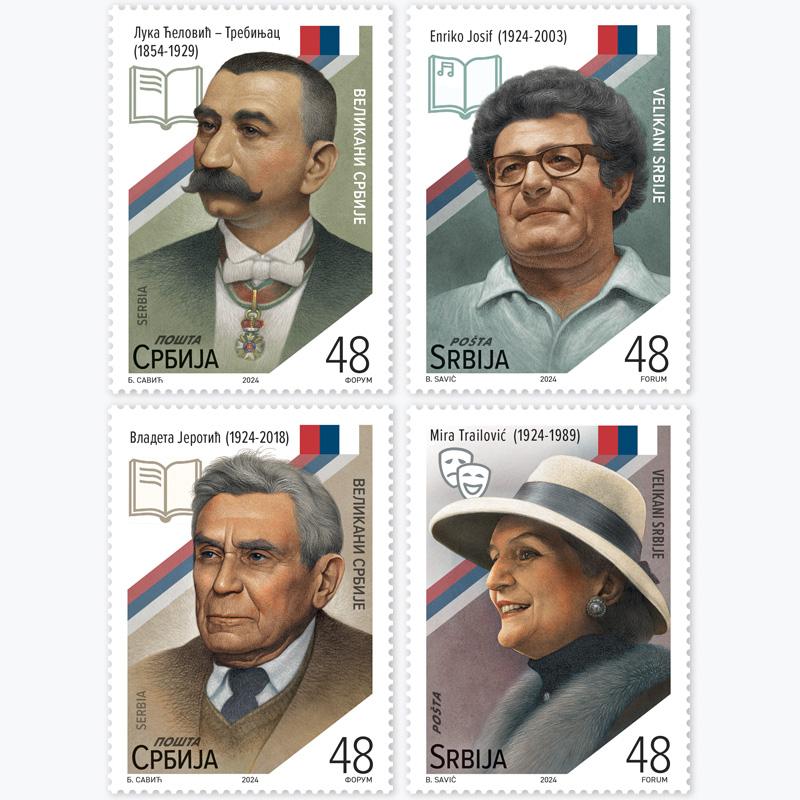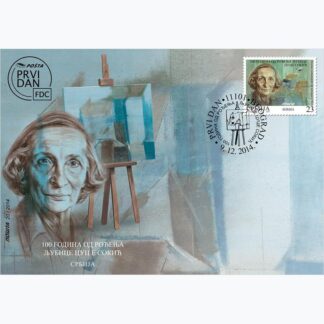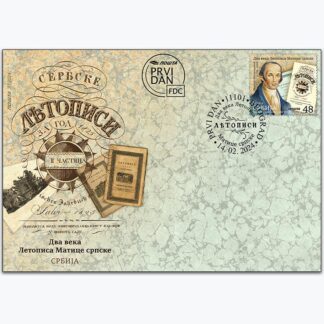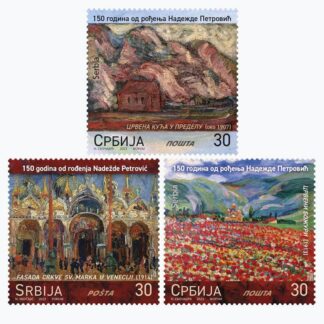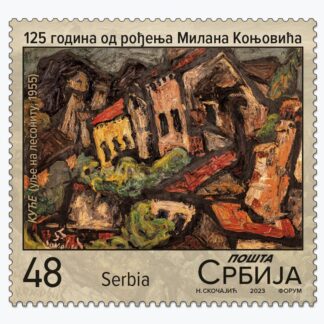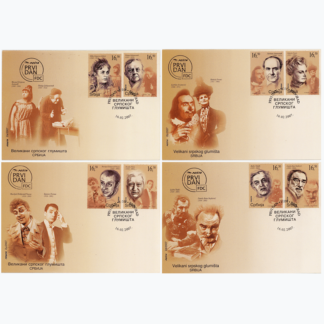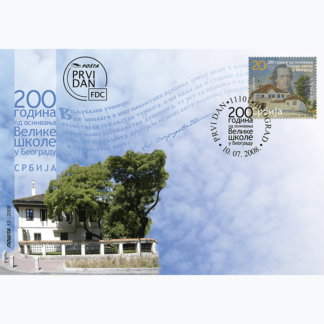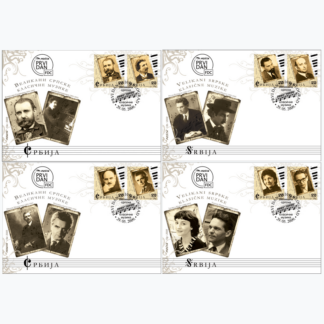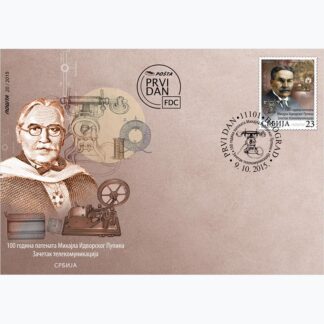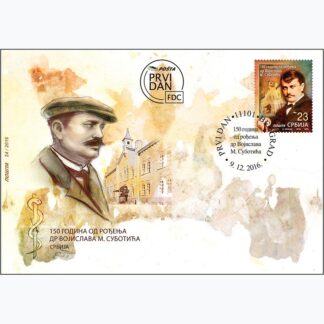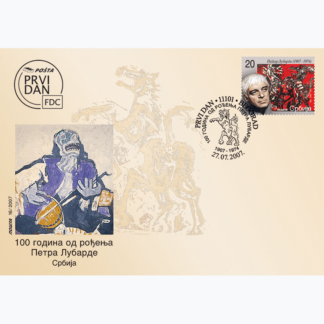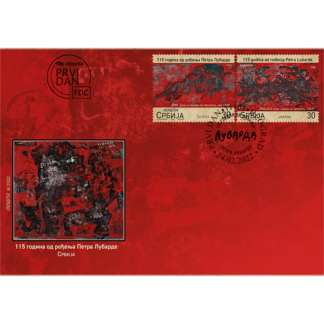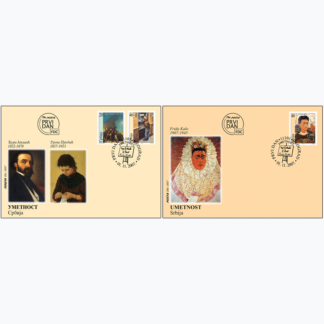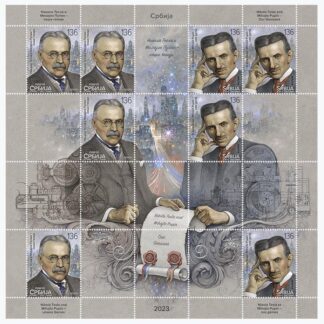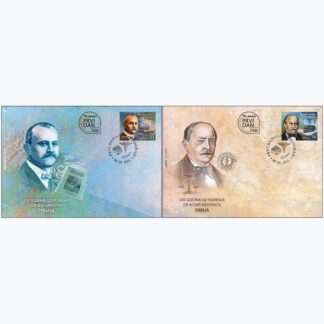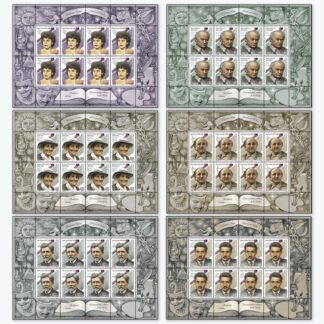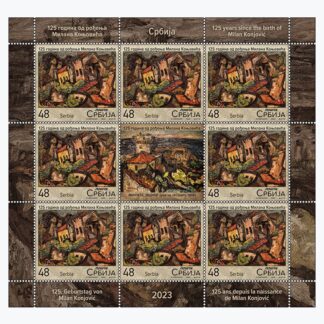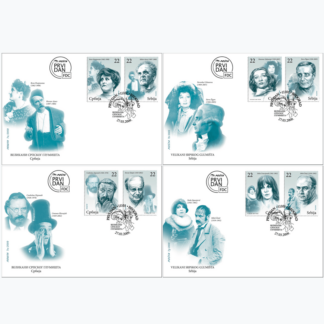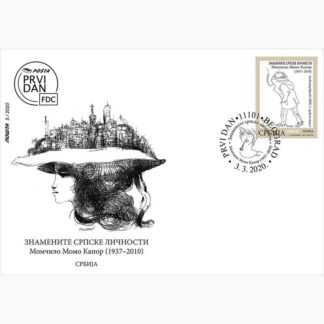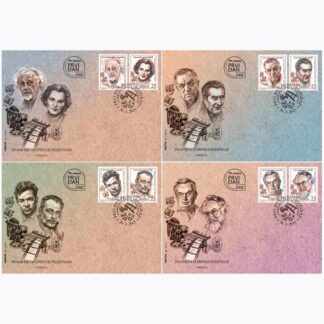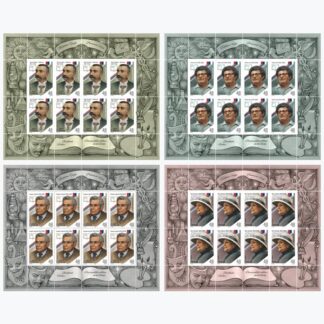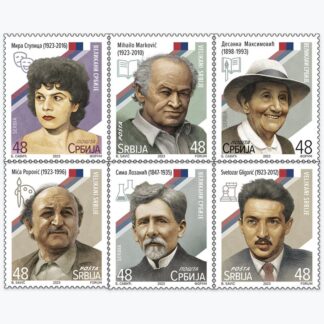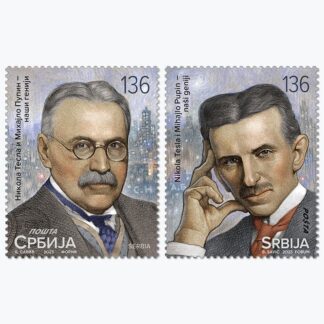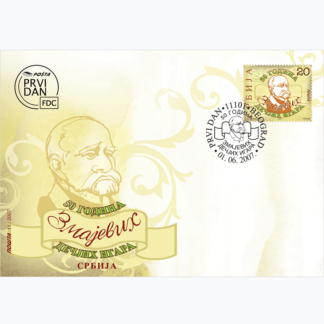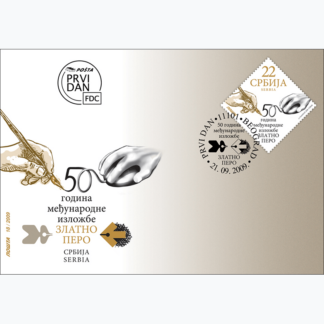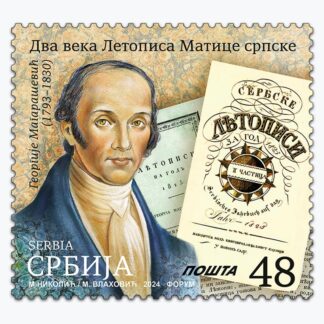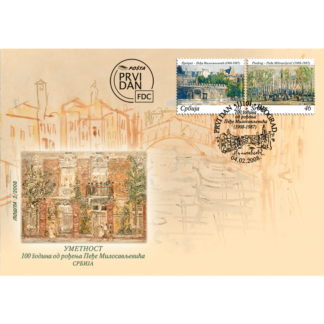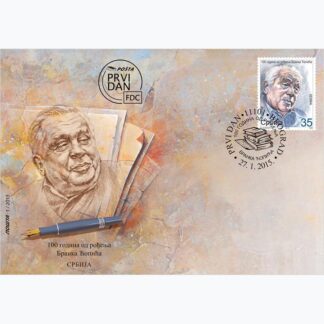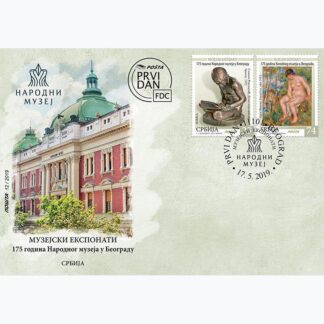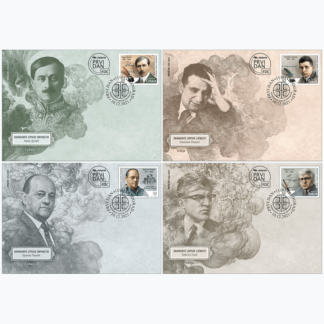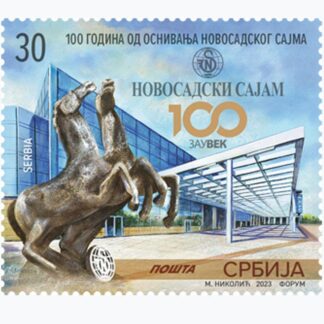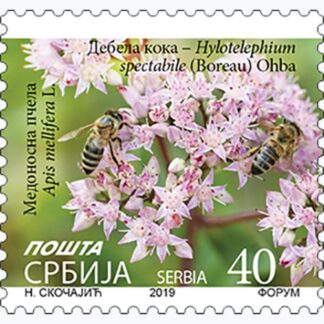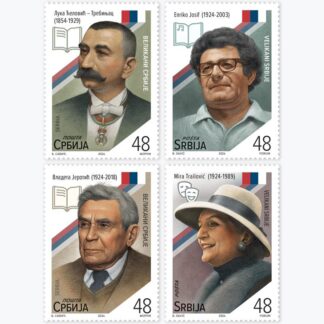Description
Luka Ćelović – Trebinjac
Luka Ćelović – Trebinjac (Pridvorci near Trebinje, October 18, 1854 – Belgrade, August 15, 1929) was a famous merchant, financier, benefactor and endower, one of the richest people in Serbia at the beginning of the 20th century and a great benefactor of Belgrade University.
He completed his elementary studies in Trebinje, apprenticed in trade in Banja Luka and Brčko, and from 1872, he was apprenticed to Petar Radosavljević and Mita Ignjatović in Belgrade. As a volunteer, in the summer of 1875 he joined the insurgents in Herzegovina, and from 1876 he joined the Serbian army during both Serbian-Turkish wars. In the fall of 1878, he began to engage in trade on his own. As early as 1882, as a reputable merchant, he participated in the founding of the Belgrade Cooperative, which was intended for small and medium-sized merchants, artisans, and officials, and devoted himself completely to the activities of the Cooperative.
He was elected as a member of the Steering Committee of the National Bank of Serbia in February 1912 and in the same year by the Decree of His Highness King Petar I from February 7, Luka Ćelović was appointed a member of the Endowment Council at the Ministry of Education, a member of which he remained until his death.
During the First World War, as a member of the Steering Committee of the National Bank, he participated in the evacuation of the National Bank's treasury with Đorđe Vajfert and Marko Stojanović, first to Thessaloniki and then to Marseilles, where he remained until the end of the war, helping our wounded and refugees.
Luka Ćelović significantly contributed to the change of Belgrade's visual identity, first by building a family house in Savamala at Kraljevića Marka St. 1, which was built in 1903 by Eng. Miloš Savčić, and then by participating in the construction of the Palace of the Belgrade Cooperative and the magnificent building of the "Bristol" hotel, as well as the Stock Exchange building. On his estate, in today's Karađorđeva Street, he built and arranged a large and beautiful park, which he visited every morning. He bequeathed all his property to the University of Belgrade. He founded the "Endowment of Luka Ćelović – Trebinjac, a Belgrade merchant" in 1926.
Enriko Josif
Enriko Josif (Belgrade, May 1, 1924 – Belgrade, March 13, 2003) was a Serbian composer, pedagogue, music writer, professor and member of the Serbian Academy of Sciences and Arts.
He was born in a Jewish Sephardic family as Hayim Yosif, but his father, Mosha Yosif, a merchant and representative of German and Italian companies, otherwise a fan of music and a fan of the famous Italian tenor Enrico Caruso, affectionately called him Enriko. Mother Sofia, educated in Switzerland, was a translator and a member of the international PEN club.
The Josif family spent the war years in exile. After the end of the war, they return to Belgrade, where Enriko continued his education and graduated from the First Belgrade Gymnasium. He graduated from the Academy of Music in the class of Professor Milenko Živković in 1954. He began his career as a music pedagogue in 1955 at the "Vojislav Vučković" Junior Music School (1955–1956) and the "Kornelije Stanković" Secondary Music School (1955–1957). He became the Assistant Lecturer at the Department of Composition at the Academy of Music in 1957 under his Professor Milenko Živković. During 1961 and 1962, he stayed in Rome for further studies, and after Živković's sudden death in 1964, he took over his chair at the Department of Composition. He was elected Assistant Professor in 1965, became Associate Professor in 1970, and earned the title of Full Professor in 1976. He worked as a Full Professor until his retirement in 1989.
He was elected a corresponding member of SANU in 1991, and became a regular member in 2000.
He composed numerous vocal and instrumental, chamber, choral and orchestral pieces, among which the most famous are "Sonata Antika", "Death of Stefan Dečanski", "Concerto for Piano and Orchestra", "Hamlet" and others.
Enriko Josif died in Belgrade on March 13, 2003. He was buried at the Jewish Cemetery.
Vladeta Jerotić
Vladeta Jerotić (Belgrade, August 2, 1924 – Belgrade, September 4, 2018) was a doctor, neuropsychiatrist and psychotherapist, professor, philosopher, writer and member of the Serbian Academy of Sciences and Arts. He graduated from the Second Male Gymnasium in Belgrade, then from the Faculty of Medicine in 1951, where he specialized in neuropsychiatry in 1957. He specialized in psychotherapy in Switzerland, Germany and France from 1958 to 1961.
Until 1963, he worked as an Assistant at the University Neurology Clinic, and when the first psychotherapeutic department was established at the "Dragiša Mišović" hospital, Vladeta Jerotić moved to work with the Primarius, Dr. Vladislav Klajn. During the decades of work on the development of psychotherapy in Serbia, he gained extensive experience in working with patients and obtained the title Primarius.
In 1985, at the Orthodox Faculty of Theology, he participated in the establishment of the Department of Pastoral Psychology and Medicine and devoted himself completely to pedagogical and scientific work, definitively leaving the hospital and psychotherapy. Interest that went beyond medicine and nourished the research spirit led Jerotić to cultural anthropology and resulted in over 70 books and several hundred scientific articles in the fields of psychotherapy, sociology, social psychiatry and philosophy. In addition to extensive journalistic activities and research work, he held a series of lectures throughout Yugoslavia and Serbia.
Since 1984, Vladeta Jerotić was a member of the Association of Writers. He was also a regular member of the Academy of Medical Sciences and a member of the Serbian Medical Society (psychotherapeutic section), the Psychotherapeutic Society of Yugoslavia, as well as the Jung Association in Belgrade. He was elected a corresponding member of the Serbian Academy of Sciences and Arts, Department of Languages and Literature in 1994, and a full member in 2000. He is the recipient of numerous recognitions and awards for his scientific work and social contribution. He died on September 4, 2018 in Belgrade.
Mira Trailović
Mirjana Mira Trailović (Kraljevo, January 22, 1924 – Belgrade, August 7, 1989) was a prominent Yugoslav theatre and film director, one of the founders and a long-time manager of Atelje 212, one of the most important theatre centres in the former Yugoslavia. Her overall contribution to culture in our region is extremely important, and her works left a deep and lasting impression.
She was born into a bourgeois family, her father was a translator, and her mother was a professor. She entered public life as an announcer at Radio Belgrade in 1944, where she later became a director and editor of the drama program. She graduated in directing in 1956 at the Faculty of Dramatic Arts in Belgrade, and later taught radio directing there. As her graduation thesis, she directed a concert performance of Goethe's "Faust" at the opening of Atelje 212 on November 12, 1956.
The establishment of the Atelje 212 theatre, at that time an avant-garde theatre known for its innovative performances that often challenged social norms and taboos, but were also extremely popular with the audience, is one of Mira Trailović's most significant achievements, although not the only one. Together with Jovan Ćirilov, she founded the Belgrade International Theatre Festival BITEF in 1967, and was its artistic director until the end of her life. In 1989, she participated in the founding of the Bitef Theatre.
На сцени Атељеа 212 поставила је неке од култних представа овог позоришта – рок оперу „Исус Христ суперстар”, мјузикл „Коса”, представу „Чудо у Шаргану” и бројне друге, а захваљујући њеном ангажману на месту уметничког директора Битефа, Београд је угостио и највећа имена позоришне авангарде оног времена – Жан-Пол Сартра, Томаса Елиота, Ежена Јонеска, Семјуела Бекета…
Known for her brave and committed approach to theatre and active social engagement, Mira Trailović made a huge contribution and left a deep mark in the world of art and culture. She died in Belgrade in 1989.
Expert collaboration: ”Svetozar Marković” University Library, Belgrade
Artistic realization of the issue: Boban Savić MA, academic painter
